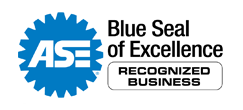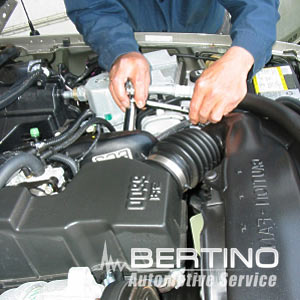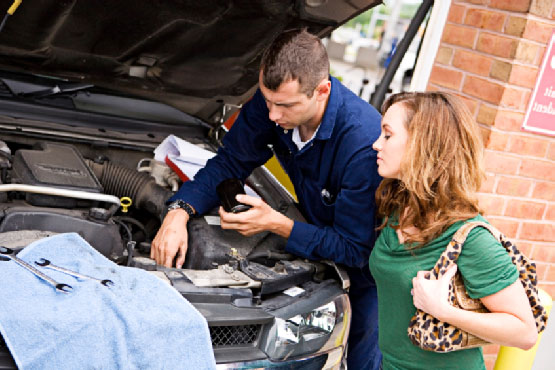How To Find An Honest Auto Repair Shop
 The easiest way to find an Honest Auto Repair Shop is to ask for recommendations from friends, family, and others you trust. Shop around by phone and on-line for the most effective deal, and compare reviews on yelp, google and facebook on auto repairs. Ask to check current licenses if state or native law needs to be authorized or registered for auto repair. Also, your attorney General’s office or insurance agency could grasp whether or not there is a record of complaints of local mechanics or auto repair garages.
The easiest way to find an Honest Auto Repair Shop is to ask for recommendations from friends, family, and others you trust. Shop around by phone and on-line for the most effective deal, and compare reviews on yelp, google and facebook on auto repairs. Ask to check current licenses if state or native law needs to be authorized or registered for auto repair. Also, your attorney General’s office or insurance agency could grasp whether or not there is a record of complaints of local mechanics or auto repair garages.
How to select a Honest Auto Repair Shop Mechanic
Look for auto repair shops that show numerous certifications — like the ASE seal. Certification indicates that the auto repair shop meets basic standards of information and competency in specific technical areas. check that the certifications are current, however keep in mind that certification alone isn’t any guarantee of honest auto repair work. Before you bring your car down to your local mechanic, research their work. Some mechanics charge a flat rate for automobile repair labor. The auto repair costs rely on ASE or manufacturer’s estimate of the time needed to finish repairs. Others charge on the idea of the particular time the technician worked on the repair.
Shops that do solely diagnostic work or repairs will also able to offer you an objective opinion regarding what repairs are needed and an estimate on total cost.
What should an auto repair estimate consist of?
It should list the condition to be repaired, the required parts, and also the anticipated hourly charge. Double check that you get a signed copy. It will also say that the mechanic can contact you for approval before they are doing any work beyond the estimated quote. Get a completed auto repair order describing the work done. It will list: components equipped, the price of every part, labor charges, and also the vehicle’s mileage reading after you brought the vehicle in and after the repair was completed.
Preventive Maintenance
 Many components on your vehicle could cause your car to break down. Ignoring maintenance will result in trouble: specific components — or a complete system — will fail. Neglecting even easy routine maintenance, like oil changes or checking the fluid, will result in bad fuel economy, irresponsibleness, or pricey breakdowns.
Many components on your vehicle could cause your car to break down. Ignoring maintenance will result in trouble: specific components — or a complete system — will fail. Neglecting even easy routine maintenance, like oil changes or checking the fluid, will result in bad fuel economy, irresponsibleness, or pricey breakdowns.
Follow the manufacturer’s maintenance guidles in your vehicles owner manual. Some auto repair mechanics set their own maintenance prices. Compare with those counseled in your owner’s manual. Ask the auto repair shop why it recommends service and what could happen if I on’t get them done? Costs vary and are typically negotiable.
Document all transactions still as your experiences with dates, times, expenses, and also the names of the mechanics. Eyeballing the world around your vehicle, listening for strange noises, sensing a distinction within the manner your vehicle handles, or perhaps noticing uncommon odors are great ways to be alert while driving.
You can determine automotive fluids by their color and consistency:
Yellowish, pastel blue or florescent orange colours indicate engine leak caused by a foul hose, pump or old radiator. A dark brown or black oily fluid suggests that the engine needs an oil change. A foul seal or seal might cause the leak. A red oily spot indicates a transmission or power-steering leak. A puddle of clear water typically isn’t any downside. it’s going to be traditional condensation from your vehicle’s air conditioning.
Keep an eye out for these common auto repair smells and noises:
- The smell of burned toast — a light-weight, sharp odor — usually signals ASE electrical short and burning insulation. To be safe, attempt to not drive the vehicle till the matter is diagnosed.
- The smell of rotten eggs — an eternal burning-sulphur smell —typically indicates a tangle within the converter or different emission management devices. Do not delay diagnosing and repair.
- A thick acrid odor typically suggests that burning oil. Explore for signs of a leak.
- The smell of petrol vapors when a failing begin could mean you’ve flooded the engine. Wait some minutes before attempting once more. If the odor persists, likelihood is that there is a leak within the equipment — a doubtless dangerous downside that desires immediate attention.
- Burning organic compound or chemical odor could signal hot brakes or clutch. Check the emergency. Stop.permit the brakes to chill when continual exhausting braking on mountain roads. light-weight smoke coming back from a wheel indicates a stuck brake. The vehicle ought to be towed for repair.
- A sweet, wet odor indicates a fluid leak. If the temperature gauge orvisual signal doesn’t indicate heating, drive rigorously to the closeststation, keeping a watch on your gauges. If the odor is among a hot,auriferous scent and steam from underneath the hood, your engine has hot. channelise directly. continued driving might cause severe engine injury. The vehicle ought to be towed for repair.
- Squeaks, squeals, rattles, rumbles, and different sounds offer valuable clues regarding issues and maintenance desires. Here square measure some common noises and what they mean:
- Squeal — A shrill, sharp noise, typically associated with engine speed:
- Loose or worn steering mechanism, fan or air con belt.
- Click — a small sharp noise, associated with either engine speed or vehicle speed:
- Ping — A high-pitched auriferous sound sound, associated withengine speed:
- Heavy Knock — A metric pounding sound: Worn rotating shaft or rod bearings. Loose transmission converter. Clunk — A random thumping sound:
Worn shock absorbers or different suspension elements — or improper tire inflation — will contribute to poor cornering.
While there’s no exhausting and quick rule regarding once to exchange shock absorbers or struts. Weak shocks can permit the vehicle to bounce double or a lot of.
Springs don’t ordinarily wear out and don’t want replacement unless one corner of the vehicle is under the others. Overloading your vehiclewill injury the springs.
Brake issues have many symptoms. Schedule diagnosing and repair if:
- The vehicle pulls to 1 aspect once the brakes square measureapplied.
- The foot pedal sinks to the ground once pressure is maintained.
- You hear or feel scraping or grinding throughout braking.
- The “brake” light-weight on the panel is lit.
- Engine
The following symptoms indicate engine bother. Get a diagnosing and schedule the repair.
- Difficulty beginning the engine.
- The “check engine” light-weight on the panel is lit.
- Rough loafing or obstruction.
- Poor acceleration.
- Poor fuel economy.
- Excessive oil use.
- Transmission
Check that the technician checks the straightforward things first; transmission repairs ordinarily square measure costly. Here is a list of costly trnasmission issues you could face:
- Abrupt or exhausting shifts between gears.
- Delayed or no response once shifting from neutral to drive or reverse.
- Failure to shift throughout traditional acceleration.
- Slippage throughout acceleration. The engine hastens, however the vehicle doesn’t respond.
Tune-up — The old style “tune-up” might not be relevant to your vehicle. Fewer components, aside from belts, spark plugs, hoses and filters, have to be compelled to get replaced on newer vehicles. Follow the recommendations in your owner’s manual.





I like the tip about doing research about the work your local mechanic does before taking your car there. It sounds like a good way to avoid any unsuspecting surprises. The trick to getting the best service for your car is probably in the details.